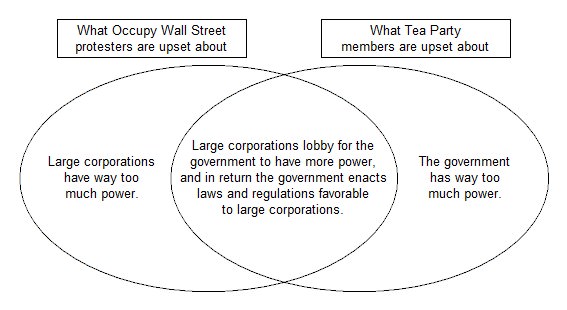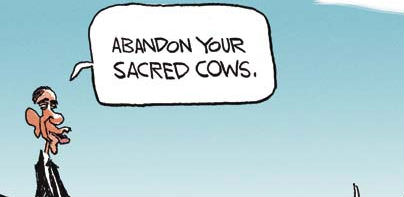 |
| Which to choose? |
This afternoon (evening?), the law school community was rocked by a mass act of civil disobedience so bold and daring that the spirit of Henry David Thoreau briefly manifested itself in the Vanderbilt courtyard. As students stormed out of their classrooms to join the Wall Street Occupation!, professors shook their fists in rage and denounced the excesses of capitalism that had made such audacious disruptions necessary.
Or at least, I imagine that they did. You see, I didn’t have class at 4:00 this afternoon when the walkout was scheduled. In fact, I don’t know anybody who did. To be fair, the 4:00 hour is scheduled as an S4 Block on Wednesdays. S4 Blocks are reserved for “Faculty Meetings & Adjuncts Only.” Still, I’m sure students could have defiantly walked out the library. If they made enough of a huff about it, somebody might have even noticed.
Anyways, after walking out, the brave Occupiers! were summoned to the fountain at Washington Square Park. Now, as a radical anarcho-capitalist, I simply refuse to kowtow to the Man’s tyrannical enforcement of Daylight Savings Time. As such, I was about an hour late to the pre-march pow wow in the park, and by the time I had arrived the hippy brigade had been replaced by some grim looking sound and camera people filming a scene for C.S.I. New York (Fridays on CBS). Admittedly, I probably could have caught up with the Occupiers! down at City Hall, but I am deathly afraid of bedbugs, and rubbing shoulders with New York’s grungiest, unemployed-iest hippies seemed like a recipe for disaster.
 |
| Pictured: A risk I'm not willing to take. |
So instead of reporting on the Wall Street Occupation! firsthand, I am unfortunately reduced to drawing from hearsay, blog posts, and my own impressive capacity for stereotyping and generalization. But that has never stopped me from loudly sharing my opinions in the past, and I’ll be damned if it’s going to stop me now!
The Occupiers! (so I imagine) were drawn together by their shared outrage at the radical rightwing establishment currently occupying the White House (D), the Governor’s mansion (D), and the New York State Assembly (D) and Senate (R, actually. Who knew?). The Occupiers! blame America’s dire position on rampant capitalism. Of course, protesting capitalism in America is akin to protesting designated hitters in the NFL, but nevermind. The system, it would seem, has been bought and paid for by cigar-smoking, rotund, and probably bald Wall Street fat-cats. The only cure is a movement towards socialism. Because nothing does more to end cronyism and corruption in our political system than centralizing all economic decision making to a small caste of political elite.
 |
Quiz: Which curve represents the
demand for labor? Hint: Paul
Krugman says "B". It's not "B". |
The Occupy Wall Street! movement is a response to America’s continued economic malaise. The SEIU, Transit Workers Union, and United Federation of Teachers have joined the Occupiers! and proposed their own unique solutions to persistent unemployment. As is customary, these solutions undoubtedly involve the unions’ members being paid more to work less. After all, only a heartless social Darwinist would deny that increasing costs and slackening production are the keys to turning this economy around. Being empathetic and public-minded organizations, multiple NYU Law student groups have come forward to express their solidarity with the unions. This, of course, is because law students generally have a poor understanding of economics (see figure). After all, if we were good at making economic decisions we wouldn’t be paying $70k a year for law school.
 |
Pictured: The undeniable success of increased education
expenditures. |
But the student groups hold a special place in their hearts for teachers’ unions. A special focus of the email calling for the walkout was the draconian statewide cuts to education spending. This was a nice touch. Who’s gonna come out against the chilluns? And nothing has proven to have as big an impact on bettering education as increasing teachers’ salaries. Perhaps I should rephrase:
doing nothing has proven to have as big an impact on bettering education as increasing teachers’ salaries. But graphs and statistics are just tools of the bourgeois elite. They must be ignored. Throwing more money down the education hole just kinda sounds right, and it makes us feel good. That’s all that should matter.
Finally, if there is anything that we can all agree on, it’s that the only surefire way to put the kibosh on Wall Street’s greed is to reelect Barack Obama (the recipient of record amounts of Wall Street contributions in the 2008 presidential election). Given the aims of the Wall Street Occupation! movement, Obama clearly deserves reelection given his administration’s remarkable immunity to the cronyism that has plagued America in the past (Solyndra, General Motors, labor unions, and countless other well-connected businesses aside).





























